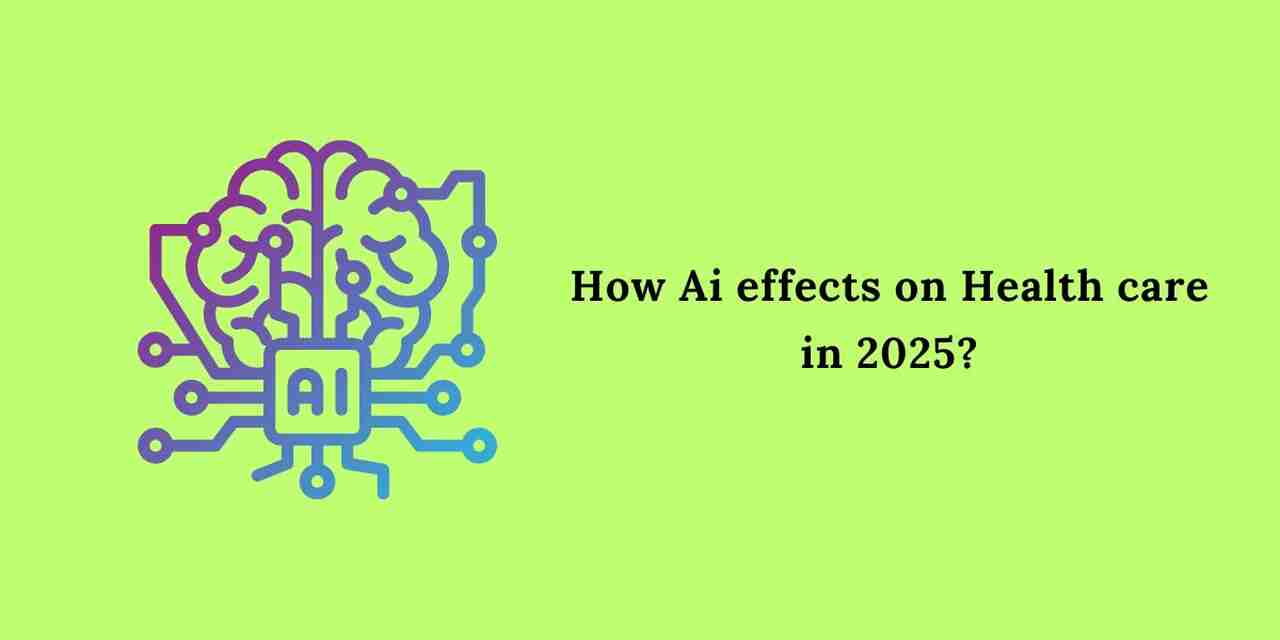- Health
- No Comment
Ai effects on Healthcare Innovation

How Ai effects on Healthcare? In a groundbreaking shift towards innovation and progress, the healthcare industry is on the cusp of a major transformation as artificial intelligence takes center stage. With the ability to analyze vast amounts of data and spot patterns that would otherwise go unnoticed, AI effects on Health care has the power to revolutionize healthcare as we know it.
From diagnosing diseases with greater accuracy to predicting patient outcomes and personalizing treatment plans, the possibilities are endless. Imagine a world where doctors can leverage AI algorithms to make faster, more informed decisions, leading to better patient outcomes and ultimately saving lives.
It’s a bold vision, but if we act now, we can start to see the impact of this revolution by 2024. The future of healthcare is here, and AI is leading the way.
Are you ready to embrace the change and Ai effects on Healthcare?
Ai effects on Healthcare: Current Landscape
AI algorithms have the capability to analyze large amounts of medical data quickly and accurately, resulting in faster and more precise diagnoses. Personalized treatment plans based on individual genetic data and health history are improving effectiveness and reducing negative reactions. Additionally, telemedicine and virtual health assistants, powered by AI, are increasing access to care, especially in remote areas. However, as AI becomes more common in healthcare, ethical concerns about data privacy, transparency, and algorithm bias need to be carefully addressed to ensure fair practices.

Advancements in Medical Diagnostics
AI has great potential to improve healthcare outcomes by streamlining diagnostics and revolutionizing treatment with fast and accurate data analysis. This helps healthcare providers make informed decisions for more precise and efficient diagnoses and treatment. Furthermore, AI-powered telemedicine and virtual health assistants expand access to quality care remotely. To maintain trust and safeguard patient information, stakeholders must prioritize ethical considerations and data privacy as the healthcare industry continues to embrace AI technology.

Personalized Treatment Plans with AI
By leveraging advanced algorithms, AI can analyze vast amounts of patient data to tailor treatment strategies to individual needs accurately. This innovative approach enables healthcare providers to offer more precise and effective treatments, ultimately improving patient outcomes. The integration of AI into personalized medicine not only enhances patient care but also streamlines healthcare delivery processes, leading to better resource utilization and cost-effectiveness.
In addition to enhancing treatment precision, AI-driven personalized medicine also plays a crucial role in preventive healthcare. By analyzing genetic predispositions, lifestyle factors, and medical histories, AI algorithms can identify individuals at higher risk of developing certain health conditions and recommend proactive measures to prevent or manage them effectively. This proactive approach to healthcare empowers individuals to take charge of their well-being and enables healthcare providers to deliver targeted interventions that can potentially reduce the incidence of chronic diseases.
With the continued development of AI technologies and personalized treatment plans, the future of healthcare holds promising possibilities for improving health outcomes and promoting overall wellness.
Telemedicine and Virtual Health Assistants
Intelligent virtual assistants offer personalized guidance, answer medical questions, schedule appointments, and assist with medication. They use AI technology to provide 24/7 support, increase patient engagement, and improve healthcare outcomes. Additionally, AI virtual health assistants simplify administrative tasks for healthcare providers, allowing them to focus more on patient care.
With natural language processing abilities, virtual assistants can communicate effectively, gather information, and give accurate responses. This enhances efficiency in healthcare settings and creates a more patient-centered care experience.
Ethical Considerations in AI Adoption
To build patient trust and confidentiality, it is crucial to address key issues like data privacy, security, and transparency. Monitoring and mitigating bias in AI algorithms are essential to ensure fair healthcare outcomes. Ethical challenges also include accountability and responsibility in decision-making processes.

Future of Healthcare: Embracing AI
Artificial intelligence technology simplifies processes like diagnosing diseases, creating treatment plans, and managing patient data. By quickly analyzing vast amounts of data, AI helps healthcare providers make data-driven decisions and deliver targeted care. Additionally, AI enhances patient engagement through virtual health assistants, telemedicine services, and personalized treatment plans. These advancements benefit healthcare providers and empower patients to manage their health proactively. AI revolutionizes the healthcare industry by prioritizing efficiency, accuracy, and patient-centered care.
Overview
As we look ahead to the future of healthcare in 2024, one thing is clear – AI is poised to revolutionize the industry in ways we never thought possible. From diagnosing rare diseases to streamlining administrative tasks, the potential for AI to improve patient outcomes and increase efficiency is staggering.
But with this great power comes great responsibility, as we must ensure that the ethical implications of AI in healthcare are carefully considered. Will we see a world where AI-powered robots perform surgeries with precision and efficiency? Or will we grapple with the moral dilemmas of relying too heavily on machines for matters of life and death? Only time will tell.
But one thing is certain – the future of healthcare is inextricably linked to the evolution of AI, and we must proceed with caution as we navigate this uncharted territory. The possibilities are endless, but so too are the risks.
It’s a brave new world we’re stepping into, one where the line between man and machine becomes increasingly blurred. Welcome to the future of healthcare, where AI reigns supreme.

